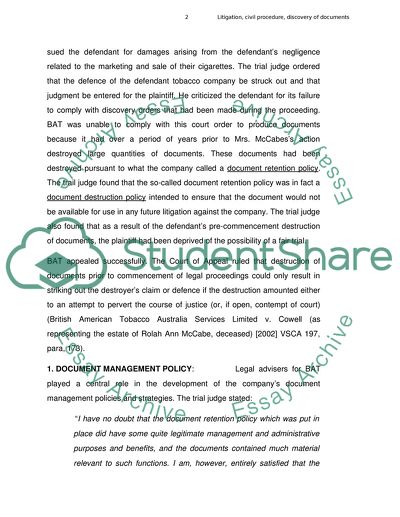Cite this document
(Litigation, Civil Procedure, Discovery of Documents Essay, n.d.)
Litigation, Civil Procedure, Discovery of Documents Essay. Retrieved from https://studentshare.org/law/1541006-litigationcivil-procedurediscovery-of-documentssee-attachment
Litigation, Civil Procedure, Discovery of Documents Essay. Retrieved from https://studentshare.org/law/1541006-litigationcivil-procedurediscovery-of-documentssee-attachment
(Litigation, Civil Procedure, Discovery of Documents Essay)
Litigation, Civil Procedure, Discovery of Documents Essay. https://studentshare.org/law/1541006-litigationcivil-procedurediscovery-of-documentssee-attachment.
Litigation, Civil Procedure, Discovery of Documents Essay. https://studentshare.org/law/1541006-litigationcivil-procedurediscovery-of-documentssee-attachment.
“Litigation, Civil Procedure, Discovery of Documents Essay”, n.d. https://studentshare.org/law/1541006-litigationcivil-procedurediscovery-of-documentssee-attachment.


